Only six cases to be tried in military courts: minister
Sanaullah says 499 FIRs registered in connection with May 9 violence
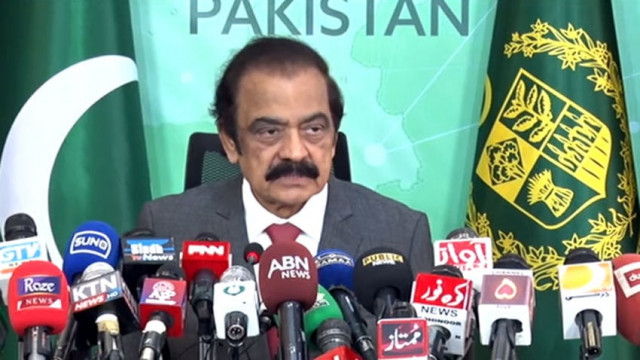
Interior Minister Rana Sanaullah on Friday said of the 499 FIRs registered in connection with May 9 violence, only six cases were being processed to be tried in military courts.
Addressing a news conference in Islamabad, the interior minister elaborated that of the six cases, two were from Punjab and four registered in Khyber-Pakhtunkhwa.
He added that of the 499 cases, 88 were related to terrorism provisions.
Sanaullah informed the media that 19 of the suspects rounded up in connection with the May 9 violence had been handed over to military authorities in Punjab.
He continued that 14 arrested suspects had been given to the custody of the army authorities in K-P.
“I was silent until today because I wanted to speak when the facts emerged completely, and I wanted to present them with full responsibility,” the minister told the media.
On May 9, violence had broken out across the country after PTI chairman and deposed premier Imran Khan was arrested from the premises of the Islamabad High Court by dozens of Rangers personnel in connection with a corruption case.
Sanaullah explained that 3,946 people had been arrested under the Anti-Terrorism Act (ATA) provisions.
He added that 2,588 people were rounded up in Punjab and 1,100 in K-P.
The minister continued that 5,536 people were arrested in other cases.
However, Sanaullah said the majority of them were released on bail whereas the remaining cases had been transferred to other courts.
He assured that those individuals, who were not involved in rioting on May 9, would not be included in the ongoing cases.
Sanaullah recalled that Prime Minister Shehbaz Sharif had emphasised that no innocent person would face any cases.
The security czar highlighted that the Official Secrets Act and Army Act were applicable when a person -- even if it were a soldier -- without permission trespassed on a building, or a part of it, which was related to the country’s defence.
“It is a punishable offence to enter, stay around, or allow people to enter such a building. Protests and videos cannot be made near sensitive buildings,” he elaborated.
#Live: Interior Minister @RanaSanaullahPK addressing a news conference in Islamabadhttps://t.co/9JvD15ZpeO
— Radio Pakistan (@RadioPakistan) May 26, 2023
Referring to calls for legislation, the minister maintained that there was no need for it or amendments to the law in connection with cases in military courts.
In response to a question, he also suggested that the PTI chief could also be tried in a military court.
“As far as my own assessment and the evidence we have… this man [Imran] is the architect of all this mess and planning, so yes he comes under this category,” he said.
Rights groups have raised concerns over military trials of civilians, saying they cannot ensure a fair trial. Such courts are closed to outsiders and the media.
The minister said after a verdict from the military courts, the accused would have a right to appeal to a high court and then the Supreme Court.
Also read: Imran calls for urgent talks amid clampdown
Sanaullah claimed that the politics of hate started with the 2014 sit-in when a political party, referring to the PTI, named its politics “jihad” (holy war).
“What happened on May 9 was also a continuation of that,” he added.
The minister said he had always called Imran a “fitna” (troublemaker).
Sanaullah also criticised former US ambassador Zalmay Khalilzad’s comments regarding the May 9 events.
He said Khalilzad had not tweeted about the person who was sentenced to jail for four years after breaking into Capitol Hill in the US.
He continued that the ex-US diplomat “only observed human rights in Pakistan”.
The interior minister alleged that money was being sent to Khalilzad for lobbying the US.
Sanaullah questioned how and why the attack on Lahore’s Jinnah House, which was not just the residence of military officials but a camp office of the corps commander and housed highly sensitive data, should be considered a political protest, adding that it was a matter of national defence.
The minister said the matter came within the jurisdiction of the Army Act, which was enforced in 1952, as the miscreants took important items including laptops that might contain sensitive data, and there were chances that this information might fall into the hands of the country’s enemies.
He also ruled out the possibility of PTI leaders quitting the party under pressure.
He raised the question that if the PTI leaders were pressured to quit the party, why were they informing the nation all the facts about the May 9 incidents.
“If they [PTI leaders] are quitting [the party] because of the hot conditions in the jail, what should we do? When we were in jails, the conditions were the same; if they cannot bear, it is not our fault. When I was in the jail, I was not even allowed to visit a hospital. We faced more difficulties than these people,” he continued.
He maintained that the PTI leaders had left the party voluntarily just because they never supported Imran’s “toxic politics”, which were always aimed at creating chaos and anarchy in the country.
Sanaullah pledged that the assemblies would complete their tenures.
He added that a caretaker set-up would be established and elections to all the assemblies would be held simultaneously across the country on time.
(With input from agencies)


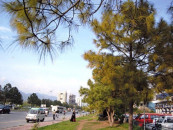
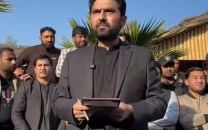
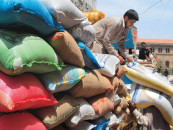

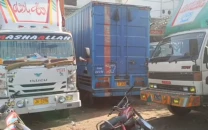












COMMENTS
Comments are moderated and generally will be posted if they are on-topic and not abusive.
For more information, please see our Comments FAQ